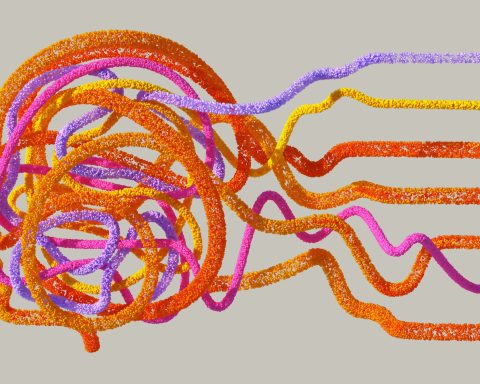 Vasumathy Sivarajasingam is a GP in West London and an Honorary Clinical Research Fellow at Imperial College London. She is also the Northwest London Primary Care Clinical Lead (Ealing Borough) for Green Agenda, Adult Mental Health, and Patient Engagement. She is on X: @vasu2776563
Vasumathy Sivarajasingam is a GP in West London and an Honorary Clinical Research Fellow at Imperial College London. She is also the Northwest London Primary Care Clinical Lead (Ealing Borough) for Green Agenda, Adult Mental Health, and Patient Engagement. She is on X: @vasu2776563
Domestic Abuse (DA) is a severe human rights violation and public health issue, affecting the health and well-being of survivors, perpetrators, and witnesses.1,2.3 This pervasive issue spans all demographics and often remains hidden for years, complicating its detection and resolution.2
Primary care teams play a key role in identifying and supporting DA survivors. They are often the first or only point of contact, providing a lifeline to safety. Building trusting relationships over time increases the likelihood of patients disclosing abuse and seeking help. Once DA is identified, timely referral to social care and DA support services is essential. The commitment and vigilance of primary care teams are vital, potentially saving lives and fostering recovery.
Here, I demonstrate how we help GP practices in Ealing become ‘domestic abuse aware’ and promote safe, sustainable healthcare. We celebrate the success stories that have emerged from our dedicated efforts to combat DA, highlighting the transformative impact of comprehensive support and intervention.
Our Initiative
The Ealing Borough primary care team has implemented measures to address DA, aiming to raise awareness and dismantle stigma among staff and patients. Launched in April 2023 and integrated into the ‘Local Primary Care Specifications,’ the initiative provides a tailored framework for all primary care clinicians to identify, safeguard, and support vulnerable groups at risk of victimisation within Ealing Borough. The initiative aligns with the Domestic Abuse Act 20211 and Ealing’s Strategy to Tackle Male Violence Against Women and Girls 2023-2027,4 focusing on enhancing identification, ensuring victim safety, facilitating referrals, and raising public awareness.
Key approaches of the initiative include:
- Collaborative development with the Ealing Safeguarding Team and clinical leads, followed by LMC approval.
- Promoting education and training for clinicians.
- Development of a borough- specific electronic documentation template within the SystmOne platform.
- Extensive community engagement efforts.
Effective referrals and safeguarding protocols have led to tailored safety plans and support services for identified survivors and dependents.
Training sessions, supported by resources from the Weekly Ealing Newsletter and RCGP-endorsed modules, aim to keep clinicians updated on DA identification and response. The electronic template ensures accurate coding, secure enquiry, risk assessment, and onward referrals. It includes detailed information about DA support services, featuring referral forms and a directory of available services. This tailored approach considers the diverse clinical team involved in patient care. Effective referrals and safeguarding protocols have led to tailored safety plans and support services for identified survivors and dependents.
Practices are encouraged to display informative posters and disseminate DA information through various communication channels. Community engagement includes insights from an IDVA-trained staff member, local media collaboration, and a DA awareness video to promote public dialogue. The aim is to inspire as many practices as possible to be proactive in raising public awareness about this ‘taboo’ subject, reducing stigma, preventing crime, and improving the health and well-being of their patient population.
At the close of the financial year, GP practices are expected to submit Key Performance Indicators, including designating ‘DA leads or champions,’ providing data on newly diagnosed individuals experiencing DA, and those referred to DA support services, and promoting the practice as a ‘DA awareness practice.’
Achievements
A total of 226 new cases of DA, spanning adults and children, were diagnosed, leading to 185 individuals being connected with specialised DA support services for tailored assistance.
At the end of the first year, 69 GP practices in Ealing Borough actively participated in our initiative. This collective effort resulted in significant achievements, including increased identification and support for survivors, improved safety planning, better access to support services, and heightened public awareness.
Key performance indicators were achieved with notable success: 65 GP practices appointed dedicated DA awareness clinical leads or champions, enhancing frontline support. A total of 226 new cases of DA, spanning adults and children, were diagnosed, leading to 185 individuals being connected with specialised DA support services for tailored assistance. Additionally, 58 GP practices actively promoted themselves as ‘domestic abuse awareness practices,’ contributing to community-wide awareness and proactive engagement in addressing DA issues.
To bolster community awareness and support, GP practices displayed informative posters about DA signs and available support services across various platforms such as practice websites, TV screens, newsletters, waiting rooms, and other high-traffic areas. Staff actively encouraged patients to engage in discussions about any concerns related to DA, fostering an environment of trust and support. Routine health checks for new, existing, NHS, and chronic disease patients included enquiries about DA, ensuring comprehensive care and early intervention. Some GP practices had dedicated DA clinical leads to review records and ensure support is provided. Continuous staff training on recognising DA indicators, understanding symptoms, and navigating referral pathways was facilitated. Discussions on DA were integrated into regular staff, practice, and clinical meetings, further enhancing team preparedness and patient care outcomes.
Notably, a new children’s safeguarding template for practices using SystmOne in Northwest London was recently launched, with the SystmOne DA template integrated into it.
Going Forward
The Ealing Borough primary care team is committed to creating a safer and more nurturing community by comprehensively addressing and preventing DA. The DA initiative is designed to be sustainable, with ongoing support and tailored training sessions provided by the Ealing Safeguarding Team, ensuring healthcare professionals stay updated on the latest developments. By embedding DA awareness and support mechanisms into routine healthcare practices, the initiative aims to create lasting change and contribute to a safer and more nurturing community in the long term.
The initiative has been rolled out for the second time this financial year 2024/25. It is also highly replicable and transferable to other GP practices, promoting a culture of awareness, prevention, and support. By sharing our successes, we aim to inspire others and contribute to a broader movement that promotes DA awareness and prevention, creating a ripple effect that extends beyond our community.
Deputy editor’s note – see also by the same author: https://bjgplife.com/reassessingniceonda/ and https://bjgplife.com/daforappraisal/
References
- UK. Domestic Abuse Act 2021. UK: Gov.UK; 2021.
- Sivarajasingam V, Webber I, Riboli-Sasco E, Alaa A, El-Osta A. Investigating public awareness, prevailing attitudes and perceptions towards domestic violence and abuse in the United Kingdom: a qualitative study. BMC Public Health. 2022;22(1):2042.
- Pingley T. The impact of witnessing domestic violence on children: A systematic review. 2017.
- Safe Ealing. 2023-27 MVAWG Strategy. Available from: https://saferealing.co.uk/wp-content/uploads/2023/10/2023-27-MVAWG-Strategy-final-draft-7th-Feb-2023-00C.pdf [accessed 17/7/24]
Featured photo by Nasif Tazwar on Unsplash






